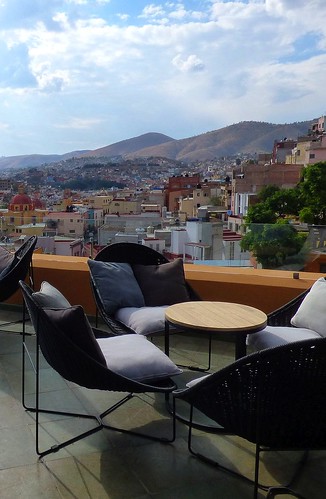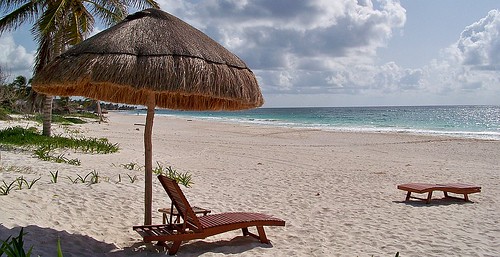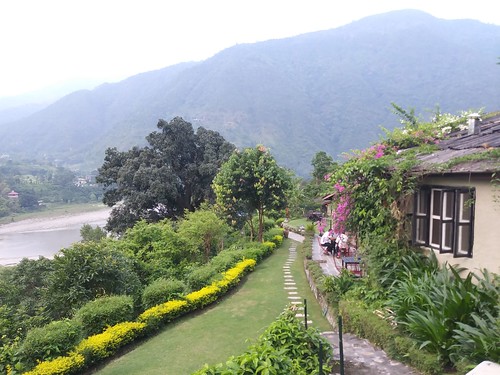Always wanted to live abroad, but not sure how? Global living expert Tim Leffel shares ALL the tips, in his book, A Better Life for Half the Price: How to Thrive on Less Money in the Cheapest Places to Live, Revised Second Edition. It covers everything you need to know to thrive overseas...inexpensively. From tips to country profiles, working abroad to family life, this book encompasses it ALL.
Highly recommended!

Tim was kind enough to share the first chapter with our Wandering Educators: Opening your eyes to a better way. Read on...and get inspired.

Open Your Eyes to a Better Way
Christa Roberts lived in New York City before moving abroad. She loved her apartment on 6th Avenue on the edge of the West Village and right near Washington Square Park, but she spent a whopping $1,300 a month on rent and utilities for her share. “I lived with two friends in a two-bedroom apartment, which we converted into a three-bedroom one by hiring a contractor to come in and build a wall halfway through the living room,” she says. “We had a small table that fit two stools and a small L-shaped couch that was in the same room as the railroad kitchen. That was it for furniture. If you can imagine that, you can see that we could provide actual seats for five people, so when we would have parties people would end up standing or sitting on the kitchen counter. All three of the ‘bedrooms’ fit a double bed (touching three walls) and just enough space to put a yoga mat next to it. My window faced a brick wall.”
Then she moved to Thailand’s largest city of Bangkok and it was a different story.
“Now I make about half of what I made in NYC. My new 2-bedroom apartment, however, which has a big living room, a small but separate kitchen, two balconies, and bedrooms big enough for king sized beds, costs me a little over $330 total for rent and utilities, including internet. This means that instead of spending half of my salary on regular expenses, I’m spending a fifth. Now I can not only have a travel fund but an actual savings account. Despite making a lot less, I can easily save at least twice as much.

Before, I was always watching my money, especially when going out to dinner. It’s nice not having to look at each price on the menu before I order and to not feel stressed out if someone at the table suggests another round of cocktails.
The best part though, is that I can travel a lot more. I recently stayed in a huge share-house with about 20 friends located in a prestigious beach town a few hours outside of Bangkok. It was essentially the same experience I had while going to the Hamptons with friends, but this time I didn’t have to sleep on the floor and got to enjoy food from our hired chef who was around all weekend. This trip cost me $100 as opposed to the $500 I used to spend on one weekend in the Hamptons.
In New York, I would save all year to go on a few long weekend trips and then one big trip out of the country per year. Now I can go away every month if I want and am also saving to visit my family this year. Being in a foreign country automatically puts you in a better position to travel internationally and see new places, but financially it’s much easier as well.”
Right now, while you’re reading this, there are a million and a half Americans and Canadians living in Mexico alone. You’ll run into plenty of other Brits in Portugal and Bulgaria, and won’t have to look very hard to find someone else from Australia or New Zealand in Thailand or Malaysia. The stories and experiences you will read in this book are from real people who are different from you in one way: they took the leap already. They’re just a little further along on the continuum than you are, that’s all. What makes them different is they picked up and moved.
Moving to another country to enjoy a better life for half the price is not odd, radical, crazy, or dumb. The people around you might say that, or at least think it, but very few who have actually done it will. Often when I asked people what regrets they had or what mistakes they had made, they replied, “I just wish I had done it sooner.”
It’s Not Your Imagination: Things Are Getting Worse at Home
No matter how you look at it, living in one of the world’s economic superpowers is not the easy ride it used to be. The top one percent keep getting richer, while everyone else is having a tougher time finding a good job and holding onto it. That’s not just my opinion: it’s borne out by statistics and an open-eyed look around at your fellow citizens. In poll after poll, two-thirds of Americans said they are dissatisfied with “the way income and wealth are currently distributed in the U.S.” The Council of Economic Advisors in Washington D.C. created “The Gatsby Curve” to plot how well countries are doing with income inequality and the ability of people to move up the ladder to a better life. The USA and UK scored among the worst in the world on both counts. According to the U.S. Federal Reserve, the top one percent in America are worth $36 trillion, which is more than the entire middle class added together. Throw in a pandemic and a second high-unemployment recession and a lot of people are getting left behind in the wealthiest countries in the world.
If you feel like prices keep going up where you live but your wages are not, you’re probably right. Over the past 25 years, wages in most developed countries have edged up just 2 – 5% in good years and have declined in bad ones, including 2010 and 2020. In good years, the wage increases have beat inflation barely, but only if you take out categories such as healthcare and education.

Guanajuato plazas
Many students are graduating from a good university and finding that all they have to show for it years later is a piece of paper and lots of debt. Even before the worldwide pandemic hit, the number of “under-employed college graduates in jobs that don’t require that education topped 20% in the USA, Canada, and Europe. Student debt routinely tops $1 trillion per quarter in the USA.
Meanwhile, housing prices continue to rise in these countries, apart from a few anomalies where newly remote workers are leaving big cities. Many dual-earning couples are paying a third of their income just on rent or a mortgage.

Argentina vineyard
Housing has continued to eat up a larger and larger share of income as rental or purchase prices rise faster than stagnant wages, in all three of these countries. On top of that, healthcare and university tuition costs keep rising far faster than the rate of inflation for Americans, and education that was once completely tax-supported is becoming less so elsewhere. Almost a third of Americans aren’t saving any money and are in fact spending more than they’re earning every year.
In other words, apart from the billionaires and the politicians who serve them, those of us in “rich” countries are falling further and further behind. According to an Oxfam report from years ago, the combined wealth of the world’s 86 richest people was equivalent to the entire bottom half of the world’s population—3.5 billion people. Those at the top have done even better in the latest recession since many head up companies that benefited from the lockdowns. The average middle-class wage earner keeps running faster on the treadmill but is not getting any further ahead.
Ask those who have made the move how they feel now and many feel like they’ve gone from shackled to free economically. Kristen Raccuia left a high-stress, high-cost real estate business in Chicago to move to Penang, Malaysia with her husband and their costs plummeted. “In an average month, not being careful or budgeting, we spend around $2,000 total. Our 3-bedroom, 4-bath apartment of 2,300 square feet has balconies with a great ocean view and we pay $650 per month.”

Beach, Honduras
How would things change if you could snap your fingers and cut your expenses in half or by two-thirds? It might actually take a wee bit longer than snapping your fingers, but you do have the power to live a more fulfilling life at a dramatically lower cost just by moving.

Portugal
It’s time for a reboot. Let’s reset the equation.

Mountains in Nepal
Learn more:
https://www.cheaplivingabroad.com/
https://timleffel.com/
All photos courtesy and copyright Tim Leffel, used with permission.
